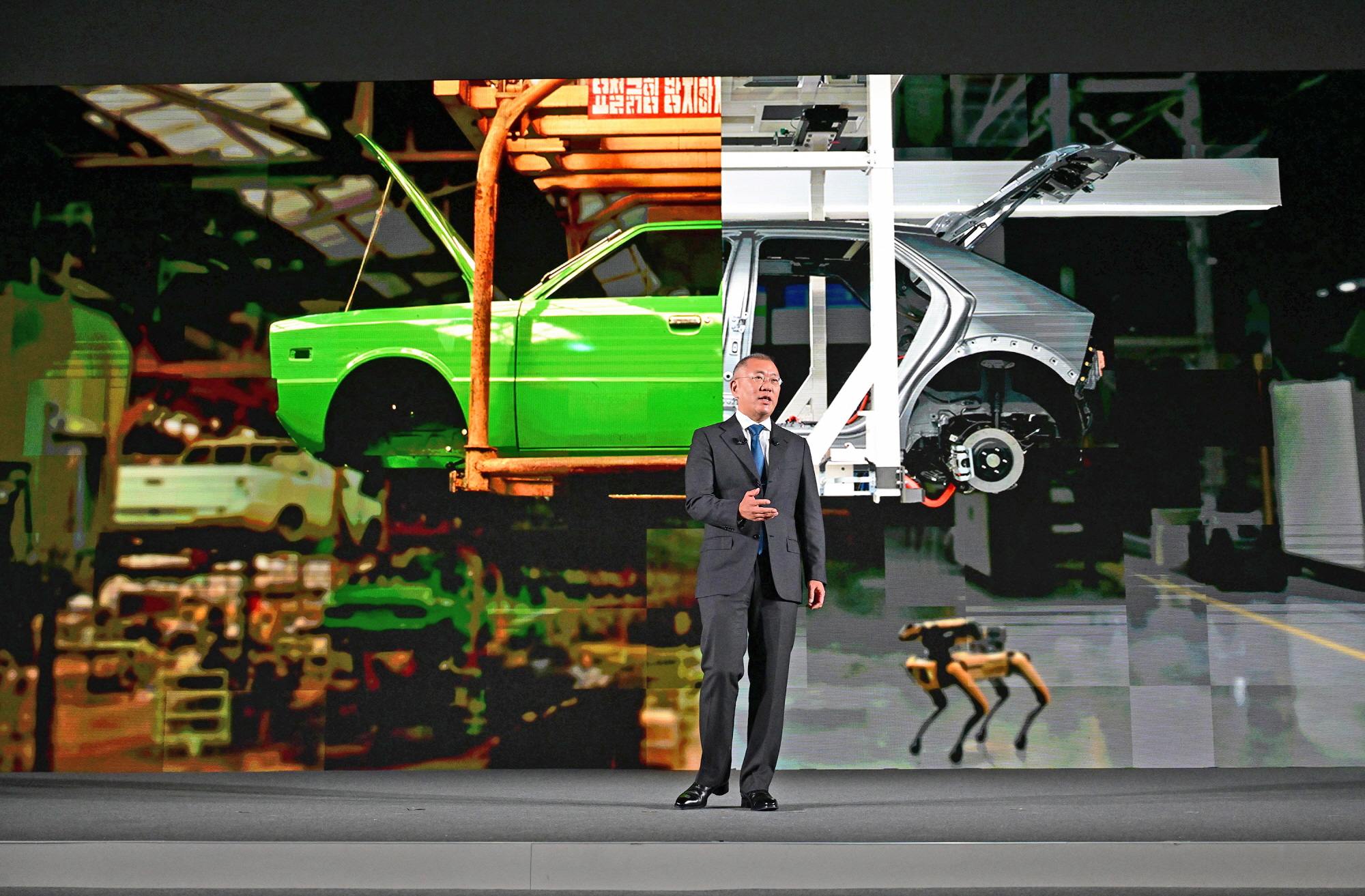
Hyundai Motor Group has announced a large-scale domestic hiring and investment plan aimed at securing its status as a global mobility first-mover and enhancing future competitiveness.
On the 27th, Hyundai Motor Group revealed plans to hire 80,000 people and invest 68 trillion won over the next three years, from 2023 to 2026. The job creation effect is expected to exceed 198,000 positions.
This effort is part of a strategy to secure future growth engines through continuous change and innovation, even amidst the uncertain business environment of the Big Blur era where industrial boundaries are dissolving and converging.
Simultaneously, this initiative is linked to Hyundai Motor Group’s ultimate vision of realizing humanity’s dream of “safe and free movement and peaceful living.”
Hyundai Motor Group aims to develop futuristic mobility solutions that are environmentally friendly and can be safely utilized by all customers, providing new mobility experiences.
The group is concretizing next-generation mobility concepts including electrification, Advanced Air Mobility (AAM), Software-Defined Vehicles (SDV), autonomous driving, and robotics.
To fundamentally enhance the quality of human life, Hyundai Motor Group is also outlining a blueprint for future cities, where the domains of energy, mobility, and logistics will sustainably interact with people, nature, and architecture.
They are enhancing their capabilities to organically combine low-carbon-centered energy solutions—such as hydrogen ecosystems and next-generation small modular reactors (SMR)—with mobility solutions that ensure seamless connectivity, along with advanced logistics systems utilizing autonomous driving and robotics, aiming for a human-centered smart city where all generations can coexist harmoniously.
This domestic hiring and investment initiative by Hyundai Motor Group is expected to contribute to establishing South Korea’s global leadership as a hub driving innovation in future mobility and to the revitalization and advancement of domestic related industries, promoting the growth of upstream and downstream industries.
The recruitment at Hyundai Motor Group will focus on new business areas such as electrification and SDV acceleration, with 44,000 of the 80,000 positions (55%) designated for these new sectors.
Investments will primarily focus on expanding research and development (R&D) and research infrastructure to secure core technologies and the establishment of new electric vehicle production capabilities.
Significant recruitment and investment will be carried out in constructing and operating domestic electric vehicle-exclusive factories. Hyundai Motor Group plans to complete the Gyeonggi EVO Plant this year, followed by the completion of dedicated EV factories in Hwaseong and Ulsan, while also transitioning existing plants for exclusive EV lines.
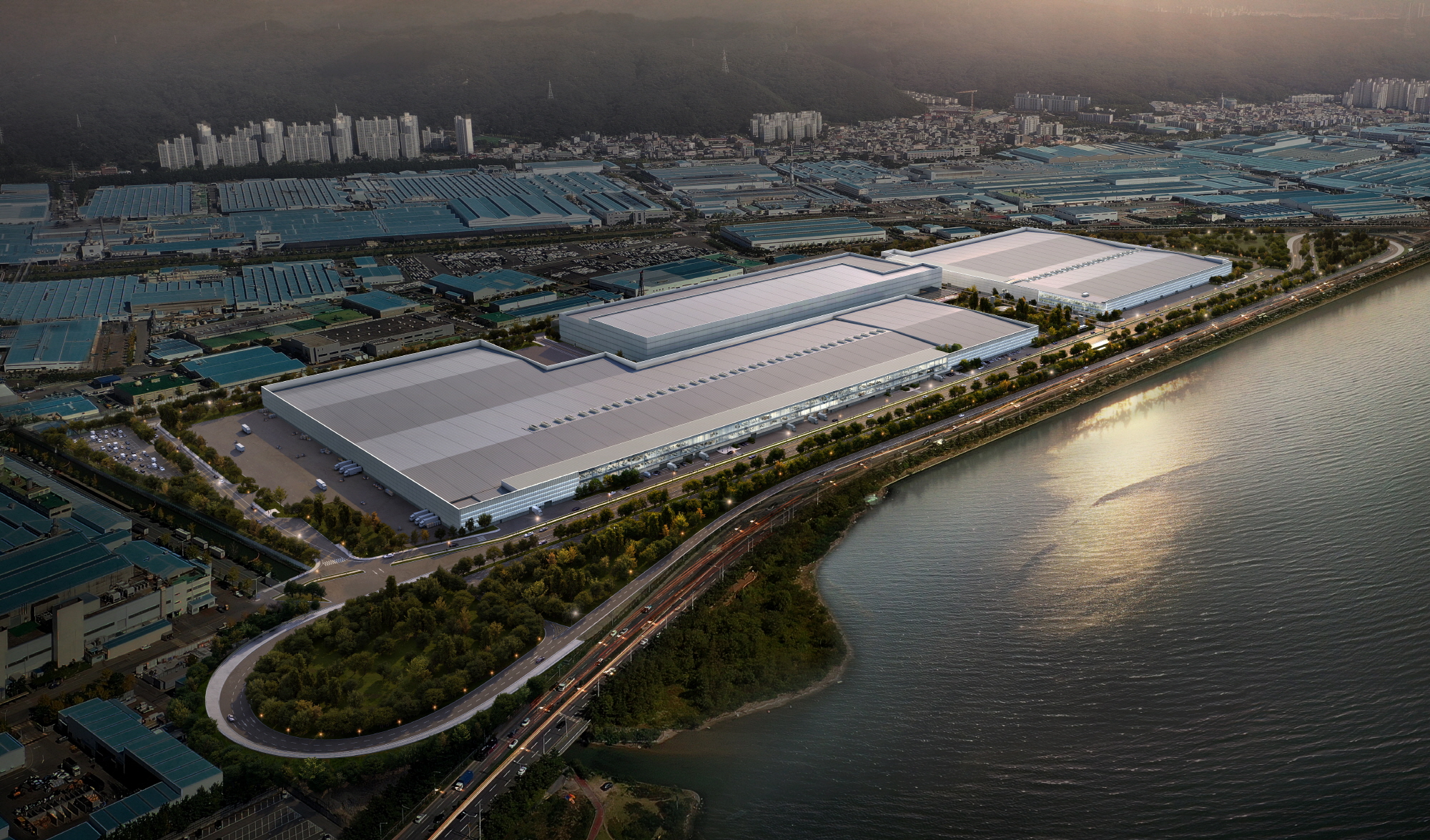
Hyundai Motor Group also anticipates significant investments and hiring related to the Global Business Center (GBC) in Seoul, which is being developed as a large landmark representing both South Korea and Seoul, as well as a testing ground for future projects. Recently, they submitted a design change proposal for the GBC to the city of Seoul, and discussions are currently underway. If the permitting process speeds up, investments and hiring are expected to commence in earnest.
The announcement of Hyundai Motor Group’s hiring and investment plans is part of their efforts to strengthen communication with the market.
In a context of achieving record-high results last year and with the stocks of key affiliates nearing historical highs, shareholders and various stakeholders demanded a concrete vision and blueprint for Hyundai Motor Group’s future during the recent shareholder meeting.
In response to this, Hyundai Motor Group aims to strengthen communication with stakeholders, including shareholders, by conveying the group’s overall direction and growth intentions at the conclusion of the shareholders’ meeting, while also enhancing the value of major affiliates that are undervalued relative to their intrinsic worth.
They also expect to contribute to establishing mid-to-long term plans for the acquisition of talented personnel and related industry companies.
Hyundai Motor Group is committed to continuing shareholder-friendly activities, including share buybacks and increased dividends, while communicating with the market, shareholders, and stakeholders.
If the employment effects of related domestic industries are taken into consideration, Hyundai Motor Group’s direct hiring scale significantly exceeds the stated 80,000 positions.
The direct hiring scale reported by Hyundai Motor Group is 80,000, and when considering an additional 118,000 jobs that will be created in the domestic parts industry due to increased employment in the finished vehicle sector, the total employment effect is expected to reach 198,000. When including other industries such as construction and steel, the job creation effect is expected to expand further.
Specifically, Hyundai Motor Group plans to hire 80,000 people across three sectors: ▲ Pushing forward with future new businesses ▲ Expansion and strengthening of competitiveness ▲ Re-employment of senior employees, averaging about 27,000 hires per year over the three-year period.
First, for the push into new future businesses, 44,000 new positions will be created. Hyundai Motor Group is pursuing new ventures such as electrification, SDV, carbon neutrality realization, and the GBC project.
In the electrification sector, Hyundai Motor Group is accelerating the expansion of its EV lineup and the construction of domestic electric vehicle-exclusive factories.
Hyundai Motor Group plans to expand its EV lineup to 31 models by 2030 and increase its annual domestic EV production capacity to 1.51 million units (920,000 for export).
As a result, they aim to hire a large workforce to facilitate research and development of new EVs and specialized EV components and modules, along with advancements in innovative EV manufacturing technologies and the construction of EV-exclusive factories.
In the SDV sector, the goal is to provide customers with a transformation toward software-enabled safe and comfortable mobility solutions and innovative user experiences.
The company is also pursuing an SDx (Software-defined everything) strategy that collects mobility data for integration with AI, ultimately building a future mobility ecosystem connected with logistics and urban operational systems, expanding a range of mobility solutions.
To achieve carbon neutrality, Hyundai Motor Group is actively replacing required electricity at business sites with renewable energy and implementing hydrogen projects and resource recycling initiatives.
They are concretizing the ‘HTWO Grid solution,’ which systematically connects the hydrogen business capabilities of each group company, providing customized packages optimized for customer environmental traits and needs in all phases from hydrogen production to storage, transport, and utilization.
In addition, new hiring will also take place in areas such as the GBC project, eco-friendly and smart construction technology development, the next-generation small modular reactor business, the development of innovative materials for high-strength steel plates, and smart logistics solutions.
Second, for business expansion and enhancing competitiveness, 23,000 new employees will be hired.
Hyundai and Kia will expand their workforce to develop competitive new models, enhance quality and safety management, diversify global operations, and increase brand value.
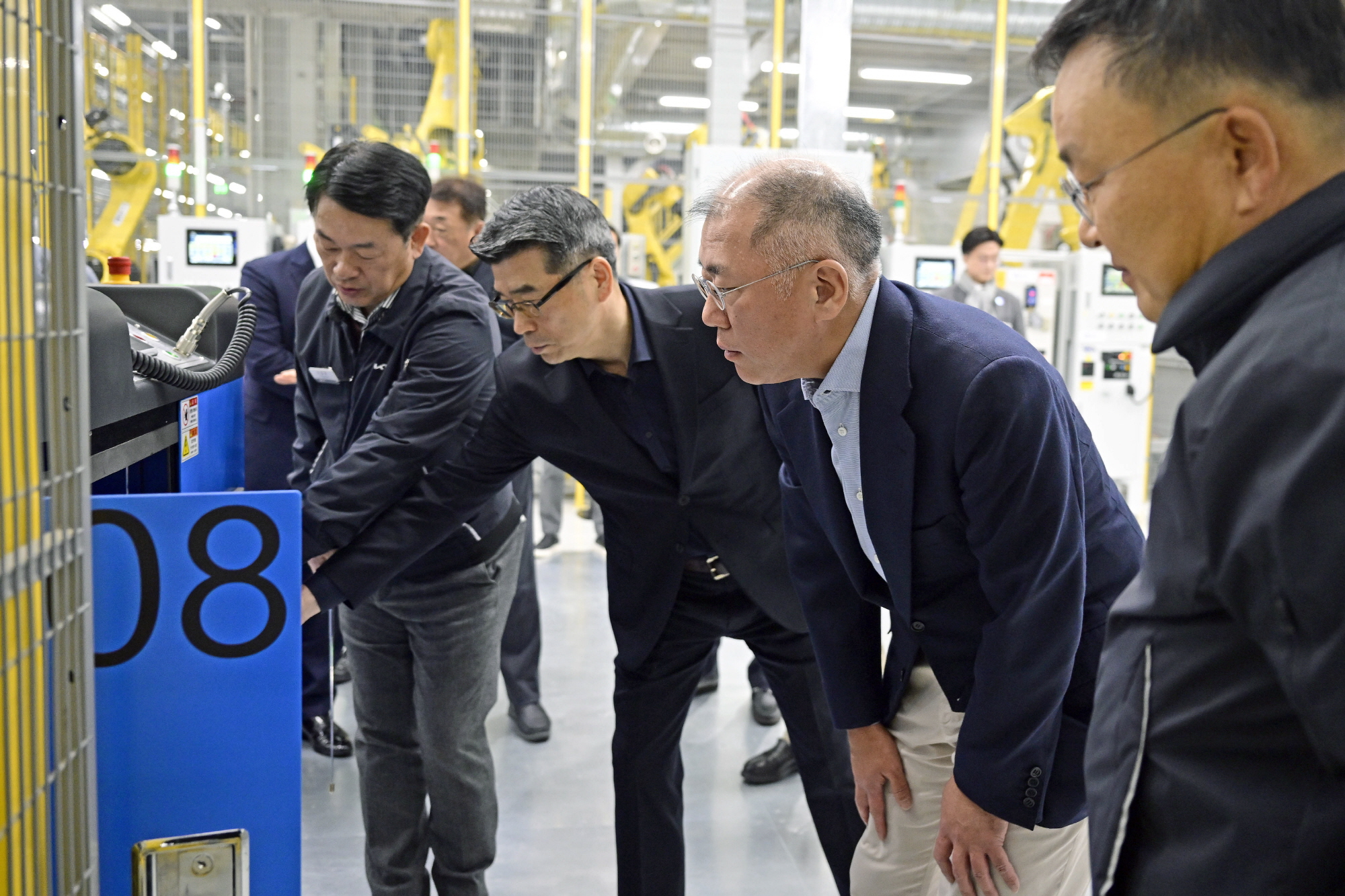
To meet diverse customer needs, Hyundai and Kia will strengthen their capabilities throughout the vehicle development process, including product planning, development, purchasing, and quality management. In order to continue qualitative growth, they will also refine their global production and sales management system.
Parts affiliates such as Hyundai Mobis will focus on developing high-quality parts and modules and strengthening after-sales service, as well as actively engaging in parts exports to major global OEMs. They are entering into large-scale supply contracts for key components, such as electrified drivetrain parts and displays.
Construction affiliates, including Hyundai Construction, will pursue domestic and international construction projects they’ve secured and seek new projects. They are undertaking major initiatives like the Shaheen Project, the largest petrochemical facility construction in Ulsan, and performing significant redevelopment projects throughout the country, including securing about 46 trillion won in urban maintenance projects.
Other affiliates, including steel, finance, logistics, defense, and IT, are also strengthening human resources to enhance core business capabilities and global operations.
Third, Hyundai Motor Group plans to re-employ 13,000 senior workforce members.
Through labor management agreements, the eight companies of Hyundai Motor Group have implemented a “continuing employment system for retirees.” This system allows retiring skilled workers in the production sector to have the opportunity to work for a certain period after retirement, effectively contributing to job creation for senior employees. Hyundai Motor Group also operates re-employment and social adaptation programs for retirees.
Hyundai Motor Group will invest 68 trillion won in Korea over the next three years until 2026, alongside large-scale job creation. The average annual investment will be around 22.7 trillion won, representing a 30% increase over last year’s 17.5 trillion won.
Hyundai Motor Group will allocate 31.1 trillion won for research and development (R&D), 35.3 trillion won for regular investments, and 16 trillion won for strategic investments.
In the R&D field, 46% of overall investments will target securing core technologies, enhancing product competitiveness, and building systems for electrification, SDV, and battery technology localization.
Regular investments will involve the expansion of research infrastructure, establishing new electric vehicle-exclusive factories, concurrent investments with affiliates, GBC project developments, and IT capability enhancements.
Hyundai Motor Group will initially execute massive investments in constructing electric vehicle-exclusive factories, beginning operation sequentially. In the second quarter of this year, they will complete the Gyeonggi EVO Plant, which will produce compact electric vehicle models (EV3) for domestic and international markets. By the second half of 2025, they will complete the Kia Hwaseong EVO Plant to manufacture customer-tailored PBV electric vehicles. The Hyundai Ulsan EV-exclusive factory plans to mass-produce various models, starting with the Genesis large SUV electric model, in the first quarter of 2026.
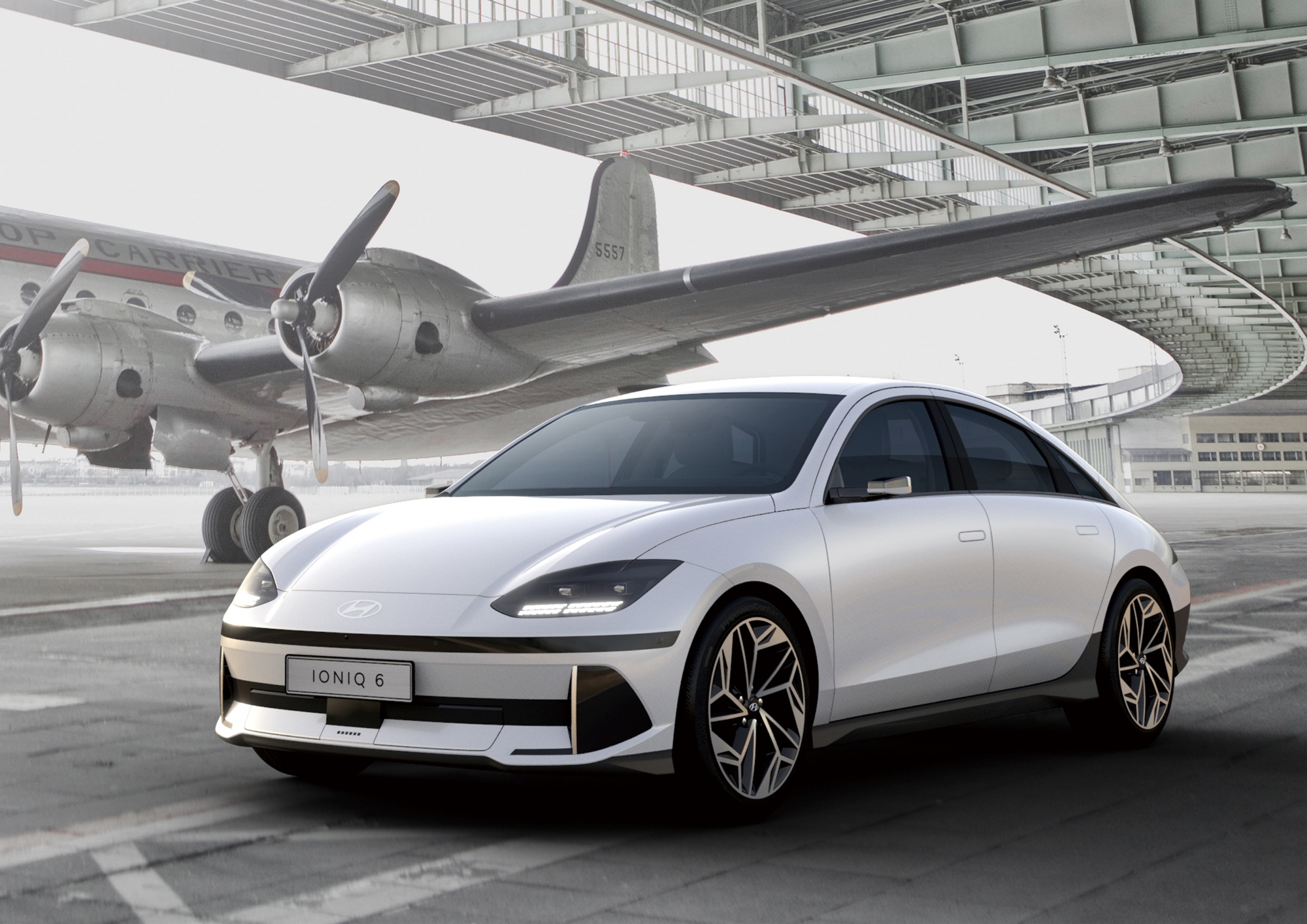
Strategic investments will focus on strengthening competitiveness in core future businesses such as mobility, software, and autonomous driving.
Out of the total investment amount, the finished car sector, including future mobility businesses, takes up about 63%, or 42.8 trillion won.
This funding will concentrate on electrification and SDV acceleration, establishing hydrogen ecosystems, AAM, and robotics sectors.
To specifically expand domestic pure electric vehicle production capacity, Hyundai Motor Group is proceeding without delay on electrification projects in Ulsan, Gyeonggi, and Hwaseong, enhancing technology and product development for electric vehicles and SDVs.
Additionally, as part of the HTWO Grid solution, they aim to connect all value chains within the hydrogen industry to facilitate the development of next-generation fuel cell systems and hydrogen buses/trucks, while also establishing hydrogen filling stations at an increased pace.
Moreover, they are diversifying new businesses while concentrating on developing new mobility devices and aim for commercialization of AAM aircraft by 2028, while also solidifying core technology localization. They aim to build a robust ecosystem for robotics business and leverage rapid growth into future mobility sectors.
Beyond the finished car sector, they plan customized investments of 25.2 trillion won by 2026 across parts, steel, construction, and finance sectors to enhance technology development, new business discovery, and core business competitiveness.
In the parts sector, they will ramp up electrification technology development and equipment investment to increase parts orders from global automakers through performance improvements and expanding lines.
In the steel sector, they will enhance investments in new materials to reduce greenhouse gas emissions and strengthen existing electric arc furnaces and blast furnace maintenance and safety-related investments. In the construction sector, they will also enhance core business powers for new projects such as small modular reactors, renewable energy, electric vehicle infrastructure, etc.
In the finance sector, they will improve IT systems and infrastructure investments to enhance customer convenience.
Hyundai Motor Group will focus on expanding logistics bases and automotive freight operations while securing core capabilities related to defense and railway systems, which have seen recent growth in overseas orders.
The GBC project that Hyundai Motor Group is pursuing in the Samseong-dong area of Seoul is expected to contribute to job creation and revitalize the national economy as a landmark representing South Korea and Seoul.
In early February, Hyundai Motor Group submitted a design change proposal for the GBC which includes two 50-story towers and four lower buildings for cultural and convenience facilities to the Seoul city government. This proposal maintains the structural framework of the previous design, which consisted of a 105-story tower and four lower buildings for cultural and convenience purposes, while redistributing the high-rise towers into two 50-story buildings.
The design changes reflect the need for practical, efficient, and sustainable space planning in response to changes in domestic and international business environments and Hyundai Motor Group’s future strategies. Factors such as national security limitations for military operations and minimizing safety risks related to fires and disasters were also taken into account.
In distributing the high-rise towers into 50-story buildings, Hyundai Motor Group plans to divert saved investment towards ▲ developing future landmark designs in collaboration with world-class architects ▲ applying numerous eco-friendly new technologies for carbon reduction ▲ and integrating cutting-edge mobility technologies such as UAM (Urban Air Mobility), PBV (Purpose Built Vehicle), and robotics.
As a result, the GBC is expected to emerge as a world-class eco-friendly complex that reduces carbon emissions while also serving as a testing ground for Hyundai Motor Group’s future businesses, organically linking internal and external spaces through a unified ecological design.
As the investment scale maintains, the GBC is anticipated to energize the economy even during the construction period and well after its completion.
The Korean Urban Administration Society estimates the economic effects of the GBC project to be ▲ a production-inducing effect of 265 trillion won ▲ an employment-inducing effect of 1.22 million ▲ and an increase in tax revenue of 1.5 trillion won.
Considering the usual permitting period, if Seoul city completes the permitting procedures for the design changes by the second half of next year, the GBC project construction will commence, leading to investments of approximately 4.6 trillion won and creating 9,200 new jobs by 2026.
By 2030, it is projected that a total investment of 19.5 trillion won will generate approximately 56,000 jobs cumulatively.
The GBC is expected to become a focal area within the Seoul International Exchange Complex, attracting skilled personnel and serving as a global landmark that integrates top-level exhibition, sales, hotels, and performance venues, thus increasing job creation and attracting a large number of tourists.
Additionally, once the GBC project gains momentum, it will likely support the activation of the surrounding commercial district and facilitate the smooth progress of the Seoul International Exchange Complex project, which is anticipated to change the dynamics of Gangnam.
Experts predict that since the new GBC design maintains the framework of the existing proposal while incorporating changes in building height and design, permitting procedures might speed up.
A construction industry expert noted, “The GBC site is already designated for general commercial use, and talks regarding land use change and public contribution have taken place. Key urban planning issues such as floor area ratio, building coverage ratio, and use have already been decided, which means that if the design changes comply with urban planning considerations, the permitting process can be simplified.”
Public contributions have been determined at around 1.7 trillion won between Hyundai Motor Group and the Seoul city government, but the company has already committed to bearing the price increase, indicating that the overall public contribution is expected to exceed 2.1 trillion won.
A representative from Hyundai Motor Group stated regarding the group’s large-scale employment and investment announcement, “We plan to continuously enhance future business competitiveness centered in Korea through extensive domestic job creation and focused investments. We will strive to provide customers with differentiated technologies and products in various new business areas that will serve as new growth engines, as well as ensuring satisfaction in our core existing business sectors.”
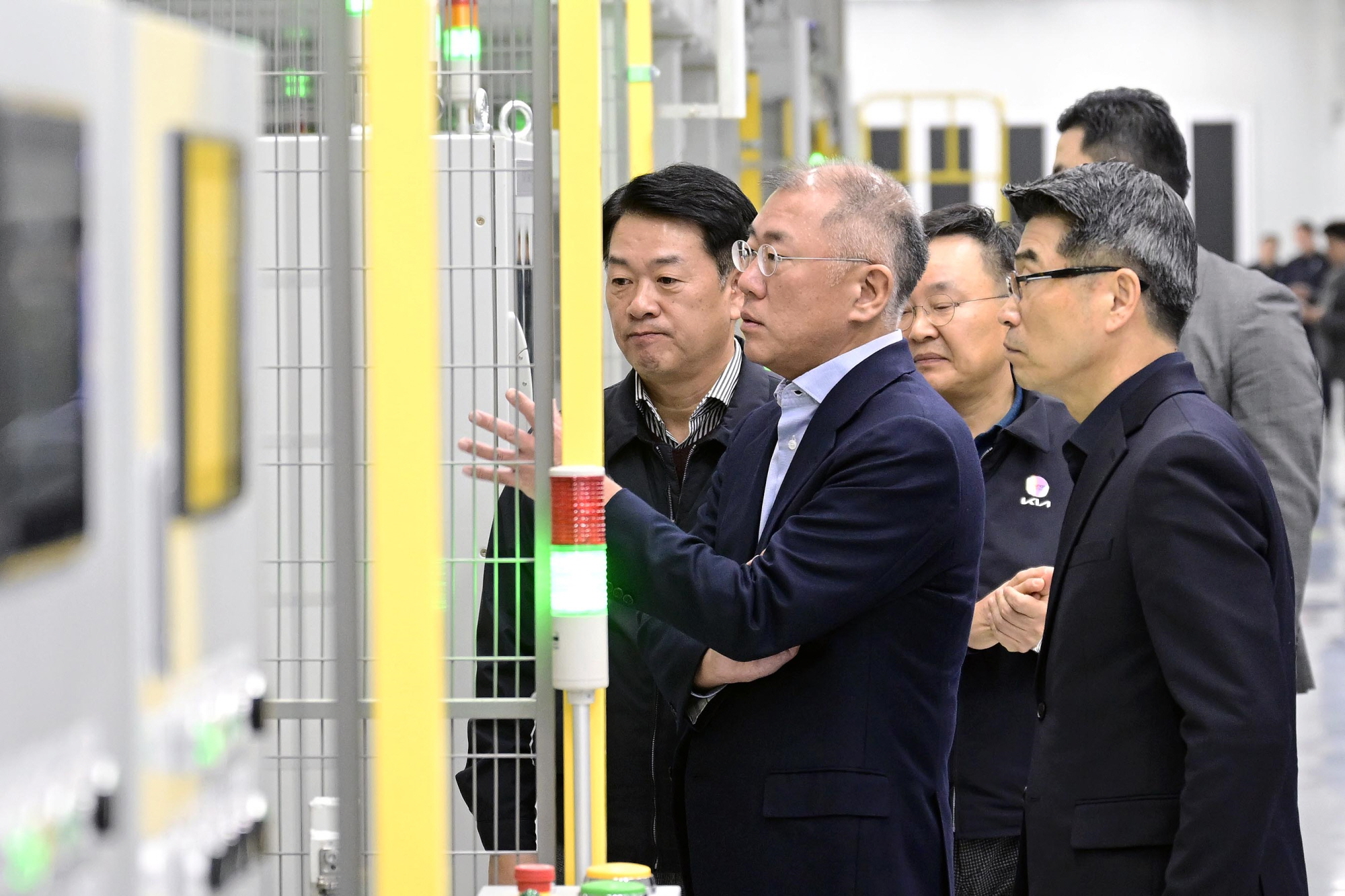
Isang-jin daedusj@autodiary.kr

